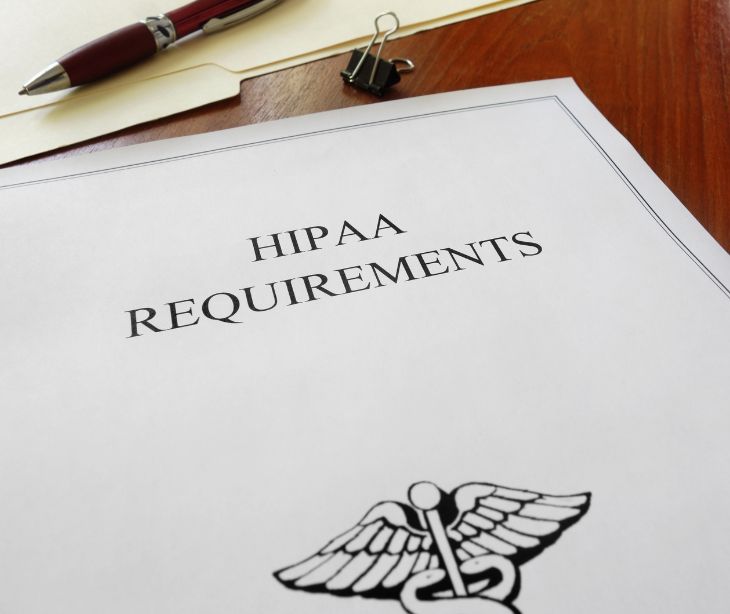3 min read
How HIPAA sets boundaries on the use and release of health records
Farah Amod
October 25, 2024

HIPAA safeguards the privacy and security of health records by establishing clear boundaries on their use and release. The definition of PHI, the requirement for authorization, the "minimum necessary" rule, and the distinctions between TPO and other purposes all contribute to protecting health data. The regulation of business associates and the imposition of penalties for violations further underscore the importance of respecting these boundaries.
Protected health information (PHI)
HIPAA defines a category of information known as protected health information (PHI). This includes all identifiable health information held or transmitted by healthcare providers, health plans, and other covered entities. By clearly defining PHI, HIPAA establishes a boundary around what information is subject to its regulations. This ensures that your most sensitive health data is protected.
Authorization for disclosure
Under HIPAA, healthcare providers and other entities must obtain your written authorization before disclosing your health records to third parties. This authorization is your consent, and it's needed to establish boundaries for who can access your health information. You can decide who can receive your records and for what purposes.
Read also: What is a HIPAA authorization form?
Treatment, payment, and healthcare operations
HIPAA allows healthcare providers to share their health records for specific purposes without explicit authorization. These purposes fall under treatment, payment, and healthcare operations (TPO). TPO represents a boundary within which your information can be used without your consent. This allows for seamless healthcare delivery, billing, and managing healthcare operations while respecting your privacy.
Minimum necessary rule
HIPAA's "minimum necessary" principle sets another boundary. It requires that when disclosing PHI, healthcare providers and others involved should limit the information shared to the minimum necessary for the intended purpose. This ensures that only relevant information is released, protecting your privacy and preventing unnecessary exposure of your health records.
See more: What is the Minimum Necessary Standard
Business associates
HIPAA extends its boundaries to other entities that work with healthcare providers and have access to your health records. These entities, known as "business associates," are also subject to HIPAA regulations. This ensures that even when health records are shared with third parties for various services, the protection of your data remains intact.
Read also: What does it mean to be a business associate?
Individual rights
HIPAA empowers individuals by granting them certain rights regarding their health records. Patients can access their health information, request amendments to their records, receive an accounting of disclosures, and be notified of breaches. These rights establish a boundary that ensures you have control over your health information and can take action if your privacy is compromised.
Penalties for violations
HIPAA imposes strict penalties for violations. Covered entities that breach the rules can face significant fines and legal consequences. These penalties serve as a powerful boundary to deter unlawful health record access, use, or disclosure.
See more: What are the penalties for HIPAA violations?
In the news
American Medical Response (AMR), a private ambulance company, was hit with a substantial civil monetary penalty of $115,200 for violating the HIPAA (Health Insurance Portability and Accountability Act) Right of Access
The incident unfolded in October 2018, when a patient submitted a written request to AMR, seeking copies of their billing records, patient balance verification, and medical records related to a specific injury date. According to the HIPAA regulations, AMR should have provided these records by the end of November 2018. However, the patient had to follow up multiple times, with the records finally being delivered in November 2019, 370 days after the initial request.
The $115,200 civil monetary penalty imposed on AMR is one of the largest fines levied by OCR for a HIPAA Right of Access violation. It serves as a clear message to healthcare providers that non-compliance with patient record access requirements will not be tolerated. By learning from this example, healthcare organizations can strengthen their record management practices and avoid similar costly penalties, ultimately prioritizing patient privacy and satisfaction.
FAQs
What is the difference between protected health information (PHI) and de-identified health information under HIPAA?
Protected health information (PHI) includes any data that can identify an individual and is linked to their health information. De-identified health information, on the other hand, has had all personally identifiable information removed or altered so that it cannot be used to identify an individual. HIPAA allows the use and disclosure of de-identified information without restrictions.
Can health records be shared with family members under HIPAA?
HIPAA restricts the sharing of health records with family members unless the patient has provided explicit consent. In situations where a patient is incapacitated or unable to provide consent, HIPAA permits sharing with family members if it is in the best interest of the patient and relevant to their care.
What are the restrictions on accessing electronic health records (EHRs) under HIPAA?
HIPAA requires that access to electronic health records (EHRs) be restricted based on the principle of minimum necessary access. Only individuals with a legitimate need to access specific health information for their job functions should be granted access. Organizations must also implement technical safeguards like encryption and user authentication to protect EHRs.
How does HIPAA address the sharing of health records for research purposes?
HIPAA permits the sharing of health records for research purposes if certain conditions are met. Researchers must obtain authorization from patients or ensure that the information is de-identified. Additionally, institutions must have agreements in place that ensure the research data is protected according to HIPAA standards.
What are the limitations on health records disclosures for marketing under HIPAA?
HIPAA restricts the use and disclosure of health records for marketing purposes without explicit patient authorization. Exceptions exist for communications that are part of a treatment plan or related to health products and services of the provider. Any marketing communication involving health information must comply with HIPAA regulations and include a clear authorization from the patient.
See also: HIPAA Compliant Email: The Definitive Guide
Subscribe to Paubox Weekly
Every Friday we bring you the most important news from Paubox. Our aim is to make you smarter, faster.




